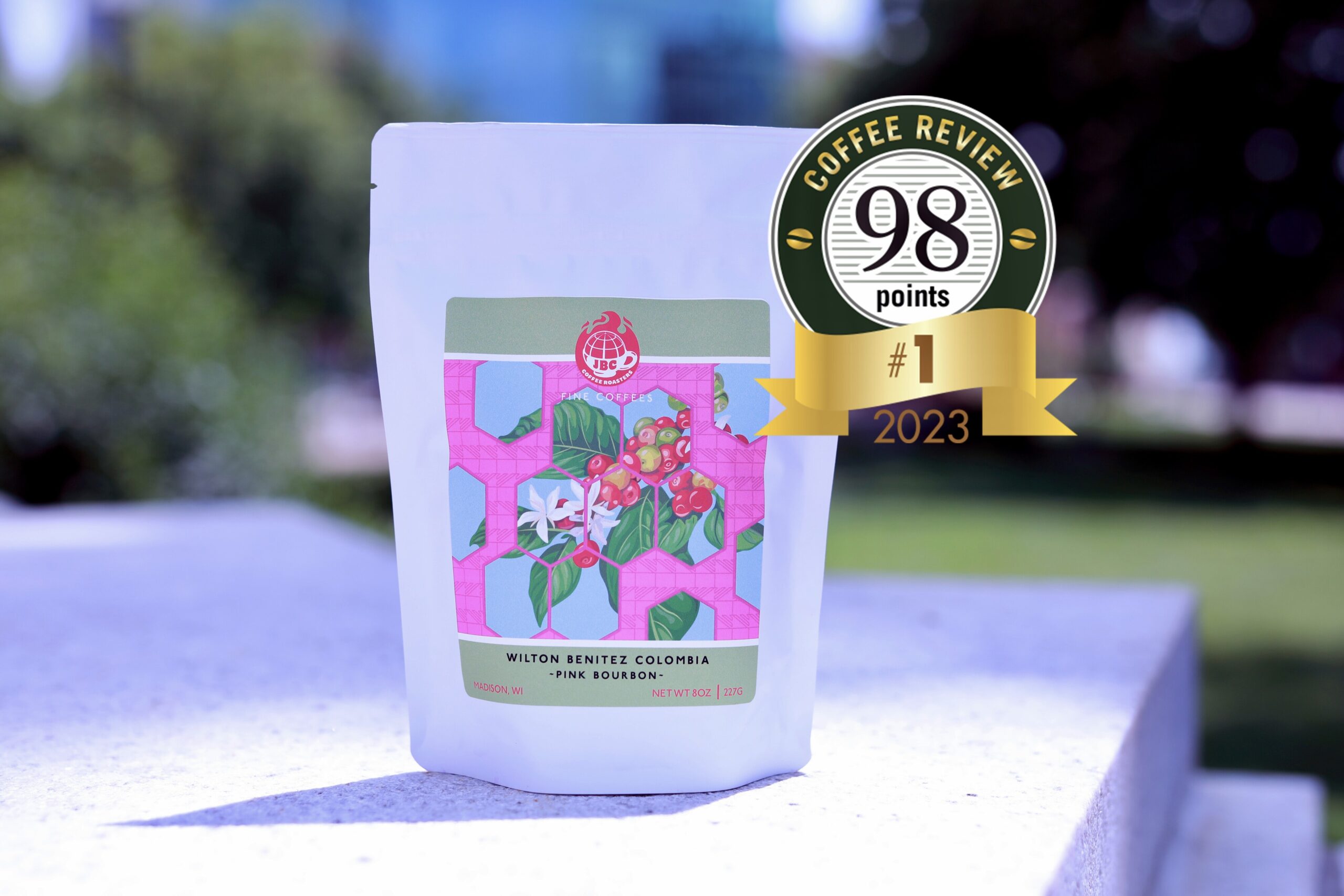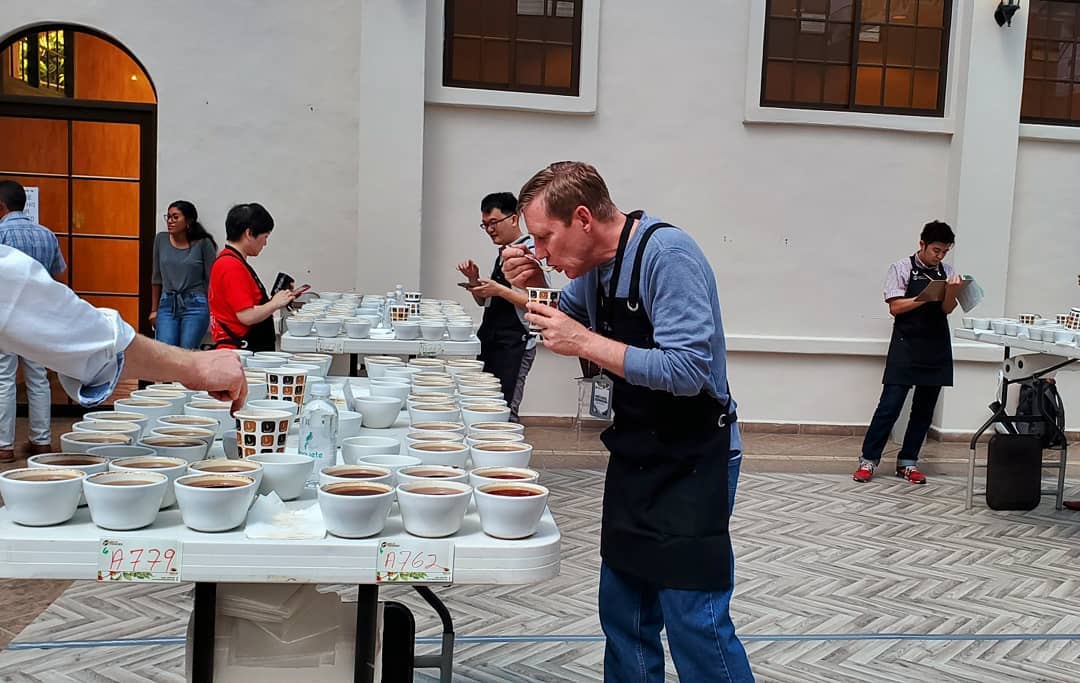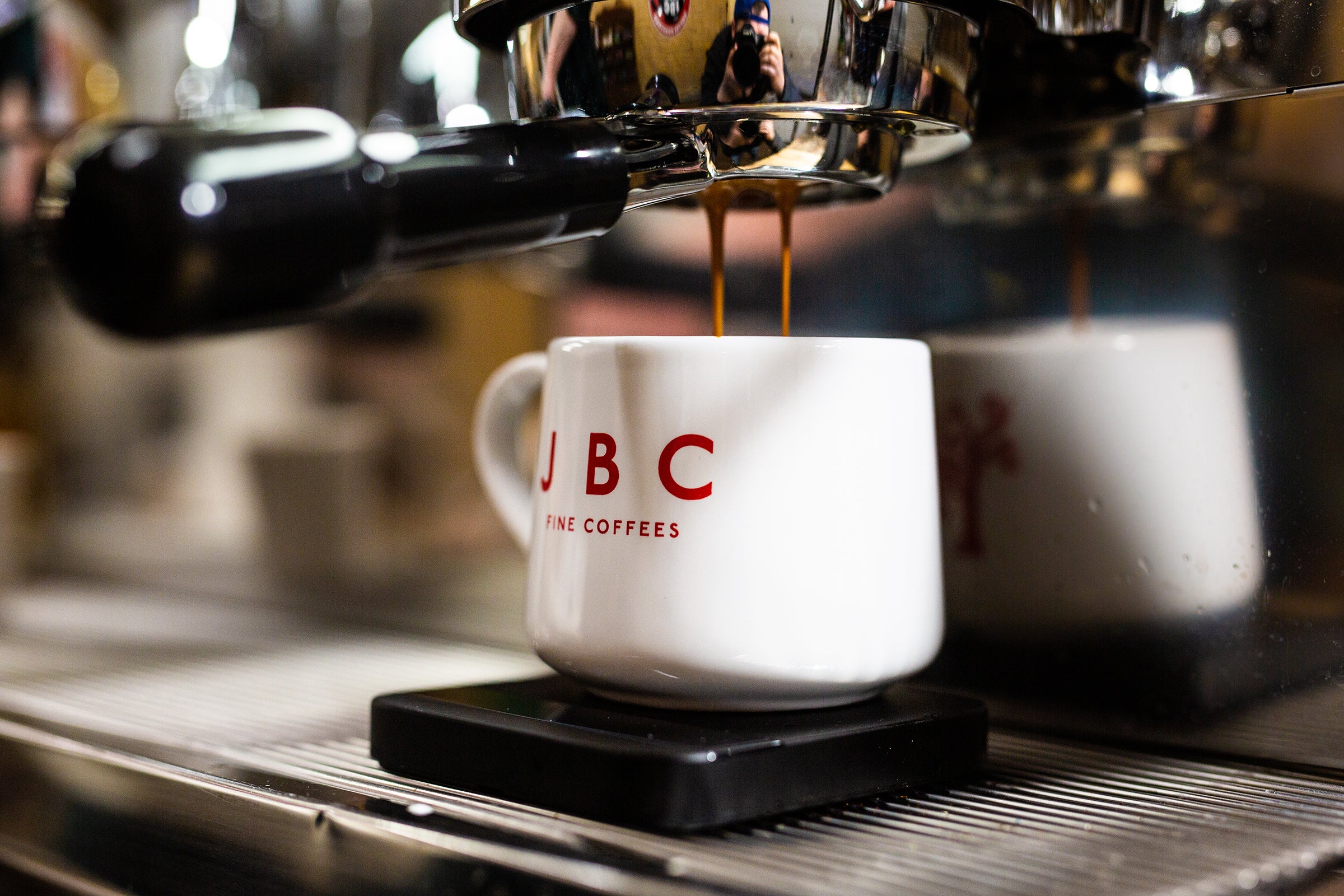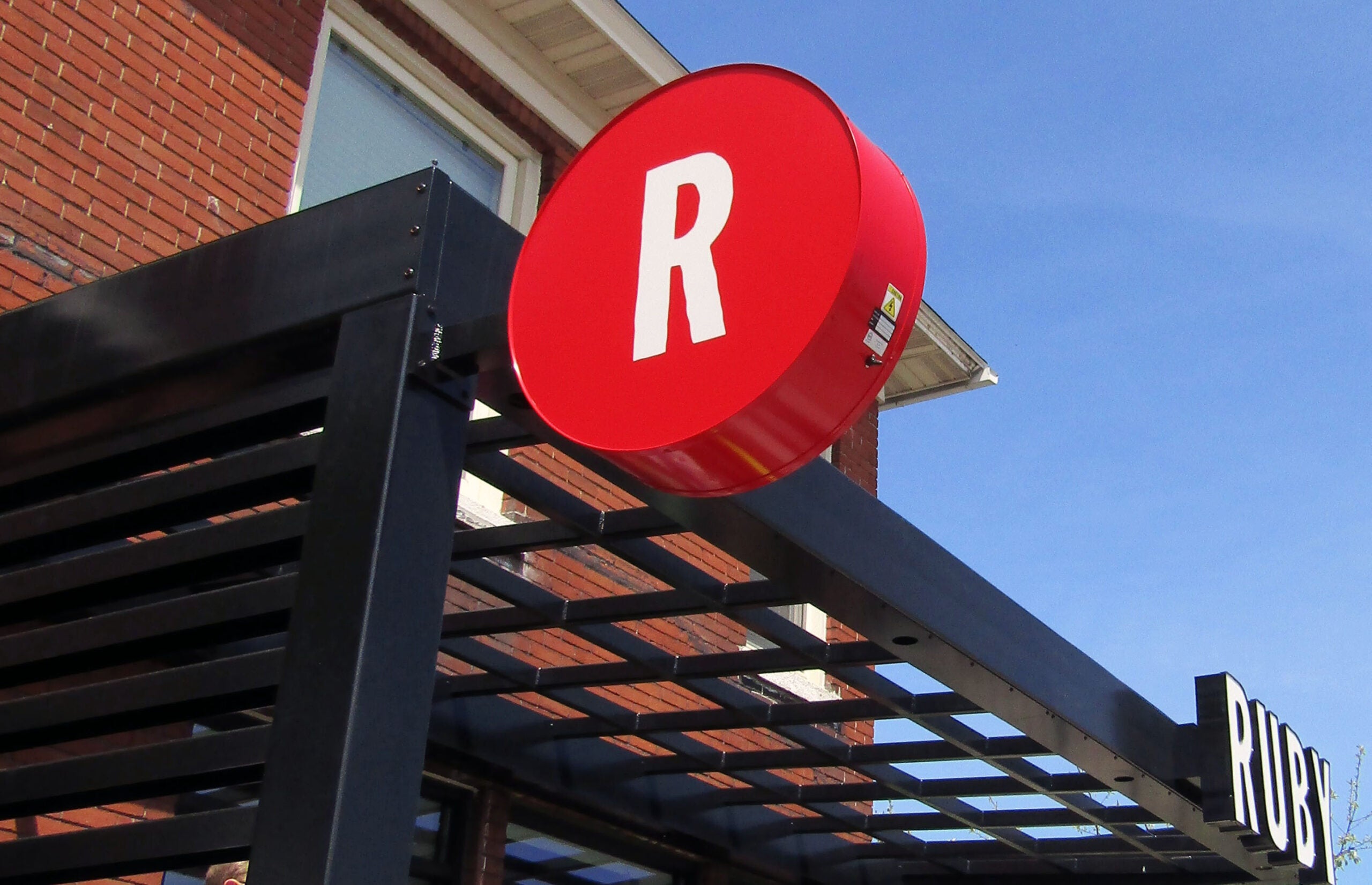The owners of a Madison coffee roaster now boast the top spot on a list of 2023’s best coffees with a brew the owners describe as sweet, bright and creamy.
The Wilton Benitez Pink Bourbon Colombia roast by JBC Coffee Roasters earned the best rating of the year from Coffee Review, which publishes monthly tasting reports and other reviews on a 100-point scale. JBC’s winning coffee received a 98.
“An elegant, decadent, pied piper of a coffee with its mesmerizing aromatics and addictively complex cup with notes like blackberry jam and frankincense — you’ll find more descriptors than you can count on both hands,” the review states.
Stay informed on the latest news
Sign up for WPR’s email newsletter.
JBC’s owners, Michael Johnson and Laura Salinger Johnson, recently joined WPR’s “The Morning Show” to discuss their creation. Michael Johnson called it “one of the most delicious coffees I’ve ever tasted in my life.” Laura Salinger Johnson said its higher amount of sucrose makes it sweeter.
“It’s just a really lovely … balanced cup with a lot of natural sweetness,” she said.
The coffee news publication, Perfect Daily Grind, recently wrote about Pink Bourbon, wondering if the coffee varietal with Colombian origins is a “new darling in specialty coffee.” Wilton Benitez, the name behind JBC’s recognized roast, is a grower in Colombia who uses his engineering background to enhance his coffee processing, Salinger Johnson said.
On “The Morning Show,” JBC’s owners also explained how water hardness affects brewing coffee, how decaffeinated coffee compares to the caffeinated alternative and how to evaluate a coffee’s quality.
The following was edited for brevity and clarity.

Kate Archer Kent: U.S. Geological Survey maps show southern Wisconsin has among the hardest water in the country. How does water hardness affect a cup of coffee?
Laura Salinger Johnson: Unfortunately, here in Madison (we) have some of the worst water for brewing coffee. It’s not going to taste good if you use the water here. What we recommend for people is to use a product we have called Third Wave Water. It’s a mineral add-back that you can add to distilled water to brew your coffee. It’s really easy.
It will make your coffee taste a lot better. If you can’t do that, I just recommend using spring water. It’s our theory that maybe craft coffee exploded on the East and West Coast because they have better water for brewing coffee. Water is 99 or 98 percent of your coffee beverage. So, it’s really important that you have good water to brew your coffee.
KAK: Water is so essential that it can affect the outcome of what you taste?
LSJ: Exactly. If you’re using the proper water and getting these really high-end specialty coffees, the bright fruit notes will pop. All those flavors that we’re after will pop. If you use the tap water here in Madison, that will become a little more muddled. I like to say a good coffee is better than a bad coffee, but using the proper water is going to accentuate the flavor we’re after.
KAK: What do you think about decaf coffee and developments on that product?
Michael Johnson: There have been efforts to produce higher quality decaf, but really the majority of the highest grade lots are going just straight coffee. That’s a pretty rigorous process to decaffeinate coffee. There have been some efforts to genetically modify coffees that don’t have decaf, but that has its own challenges and consumer concerns, as well.

KAK: Michael, you’re a certified Q grader for evaluating coffee. What are you searching for when grading coffee?
MJ: Really, sweetness is one of the main goals. We’re looking for balanced cups that have high levels of sweetness and familiar flavor profiles for people. People like a certain range of flavors, and we try to give them that.
KAK: How does someone develop a more refined taste for coffee?
LSJ: It’s similar to wine and beer. You just start tasting coffees, and if you start tasting coffees against each other, you start to realize what is a really good, sweet cup. We do cuppings at our location where we teach people how to taste coffee. We don’t tell them that you have to be super specific. You don’t have to give me this flavor note or that. Just let me know if you think the cup is good, if it’s sweet, if it’s balanced — and really go from there.
KAK: You both have said one of your favorite parts of the job is developing relationships with farmers who grow the beans. What is that like? Do those relationships make a difference in the beans or roast?
MJ: It has been humbling for us, having the ability to travel around the world, meet all these different people and see their lifestyle and how they make things work. It’s a real humbling process. You realize the effort and the passion these people have that produced some of the best coffees. It’s not by chance that the greatest coffees are coming out of these very unique, distinct places. It’s through a lot of concerted effort, and it has meant a lot to us.
KAK: Is the Pink Bourbon challenging to grow for farmers?
MJ: It’s a matter of intention. Different farmers experiment with different varietals, and some (farmers) like some microclimates better than others. Where the Pink Bourbon may grow great on Wilton Benitez’s farm, it may not grow so great on somebody else’s farm. It’s really a matter of finding your little microclimate on the producing property you have and determining which varietals are going to produce best there and then processing properly.
KAK: What could improve the coffee business climate in Wisconsin?
MJ: We’ve been seeing more and more cafes do multi-roaster approaches, where they don’t get stuck with one roaster in particular. We like that model a lot. It really then keeps you on your toes as a roaster to produce the highest quality.
One of our favorite cafes in Madison, Cafe Domestique, follows this model. They bring coffees in from all over the country. They use our coffee, too. But I’ll tell you what, it really keeps us on our toes. We’re honored when we get a spot on their shelf. That model would help promote more higher-grade coffee throughout the Wisconsin area.
Wisconsin Public Radio, © Copyright 2024, Board of Regents of the University of Wisconsin System and Wisconsin Educational Communications Board.



